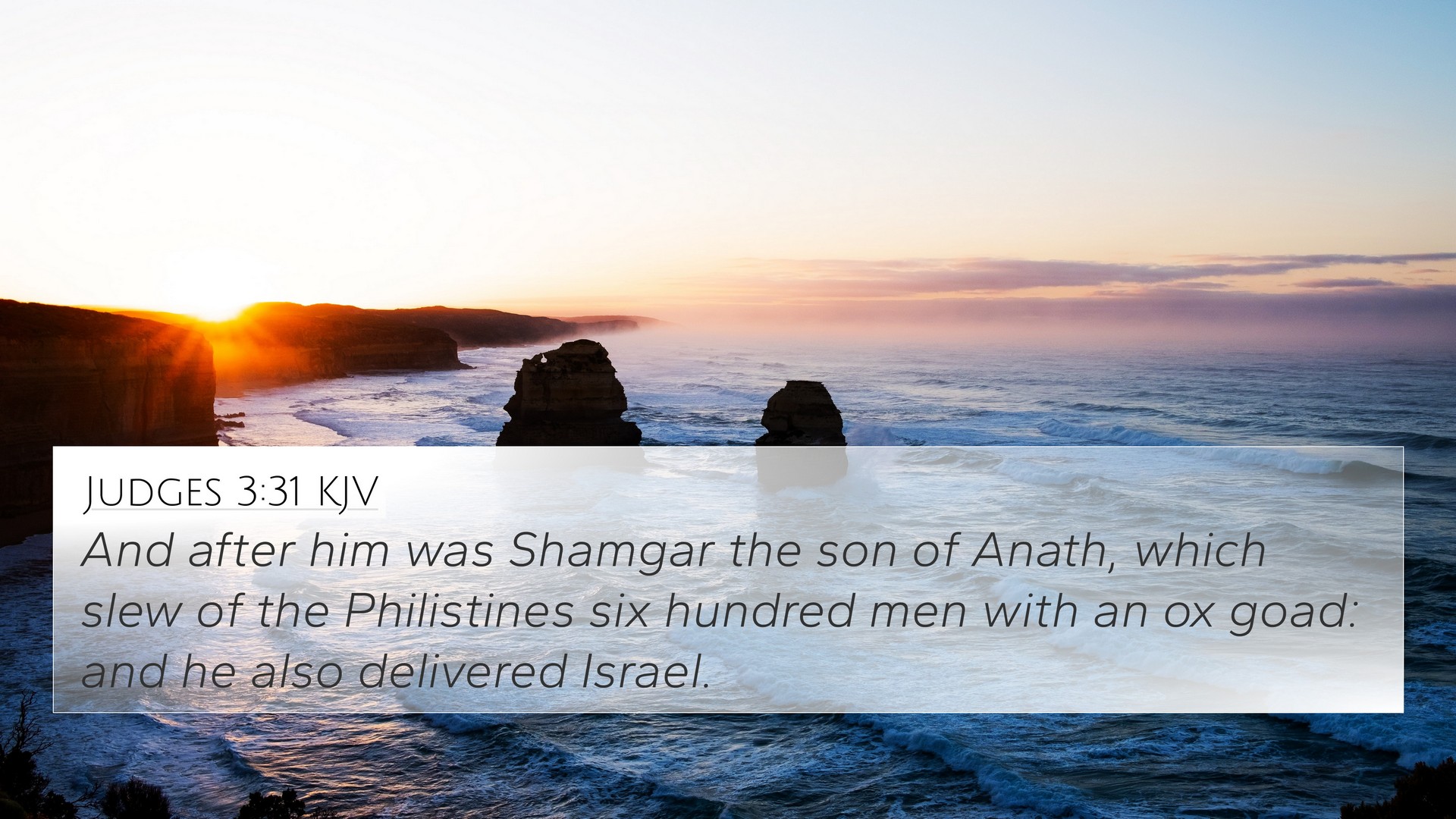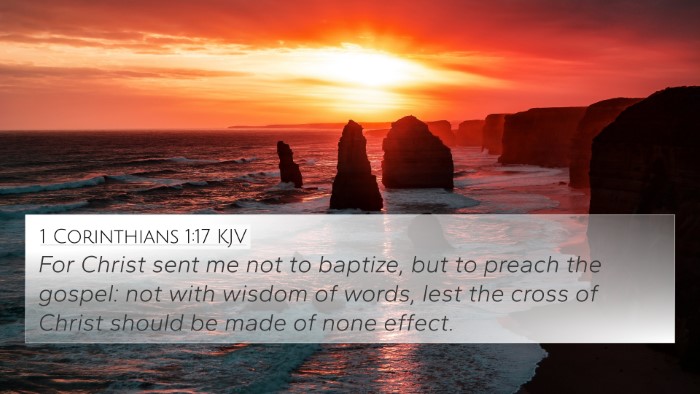Understanding Judges 3:31
Judges 3:31 presents a brief yet impactful narrative concerning the deliverance of Israel through the judge Shamgar. The verse reads:
"And after him was Shamgar the son of Anath, which slew of the Philistines six hundred men with an ox goad: and he also delivered Israel."
Verse Summary
This passage highlights the action of Shamgar, who, empowered by God, accomplished an extraordinary feat in defeating the Philistines, a persistent enemy of Israel. His victory symbolizes God's ability to deliver His people through unlikely means.
Commentary Insights
Matthew Henry's Commentary
Henry emphasizes that Shamgar's weapon, an ox goad, showcases God's ability to use simple tools for great purposes. It reflects how divine strength is perfected in human weakness (2 Corinthians 12:9). Henry also reflects on the number "six hundred", signifying a substantial victory that showcases God's favor upon Shamgar.
Albert Barnes' Commentary
Barnes notes that Shamgar is a less-known figure compared to other judges but performed a remarkable deliverance nonetheless. His mention after Ehud places him in a significant role during the Philistine oppression. Barnes suggests that the ox goad symbolizes humble beginnings and the potential for God to achieve great victories through seemingly insignificant means.
Adam Clarke's Commentary
Clarke points out that Shamgar's success in defeating six hundred Philistines demonstrates the seriousness of the oppression that Israel faced and implies a time of great peril for God's people. His lineage, being the "son of Anath", further connects him to a lineage related to strength and warfare in biblical terms.
Significance of Shamgar's Acts
Shamgar represents the courage and resourcefulness of those whom God calls to lead and deliver His people. His story reminds believers that divine purpose often transcends the weapons of warfare and rests in faithfulness and reliance on God.
Cross-References to Judges 3:31
- Judges 3:15 - The calling of Ehud, showing God’s continual involvement in Israel's deliverance.
- Judges 4:1-3 - The subsequent oppression and the rise of Deborah, illustrating ongoing struggles against the Philistines.
- 1 Samuel 13:19-22 - The context of Philistine oppression in Israel, indicating the pervasive threat during Shamgar’s time.
- Psalms 18:34 - References God training hands for battle, echoing the theme of divine empowerment.
- 2 Corinthians 12:9 - Emphasizes God’s strength being made perfect in weakness, much like Shamgar’s humble victory.
- Hebrews 11:32-34 - Mentions judges, including Shamgar, in the Hall of Faith, connecting their acts to faith in God.
- Judges 5:6 - Refers to the historical context of Shamgar’s actions, portraying the Israelite plight.
Thematic Connections
Shamgar's exploits are not isolated but reflect broader biblical themes such as:
- Divine Deliverance: Recurrent throughout Scripture, showcasing how God raises unlikely leaders.
- Faith in Action: The necessity of taking action amidst adversity, illustrated by Shamgar's use of an ox goad.
- God's Sovereignty: The narrative exemplifies God's sovereign control in Israel's history.
Practical Application
For believers today, Shamgar's story is foundational in understanding that God's strength can work through anyone willing to serve, regardless of their circumstances or resources. It encourages reliance on God during times of trouble and emphasizes that significant victories often come from humble beginnings.
Conclusion
Judges 3:31 illustrates a pivotal moment in Israel's history and underscores the theme of divine deliverance through faithful obedience. Understanding this verse through the insights of various commentaries enriches one’s study and offers important lessons for contemporary believers.
















